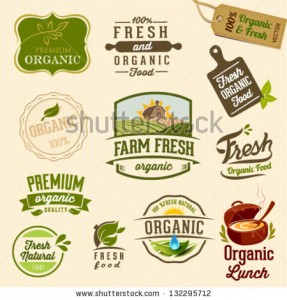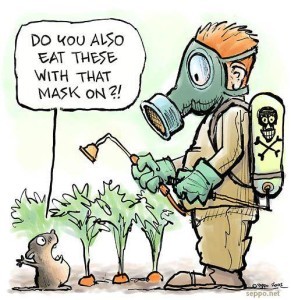For many health-conscious individuals, organic food is the only option at the grocery store. The label must indicate it comes from a trusted source, safe from all the pesticides and toxins that conventional foods are bathed with. However, organic may not be so safe, or healthy, after all.
First, let’s start off with the claim organic food companies make – the perception that organic foods are healthier than conventional ones and that there is a decreased risk of exposure to pesticides in these foods. But adding a label termed ‘organic’ does not necessarily mean that the product is pesticide-free. In fact, several organic farmers can and do use pesticides during their harvest. The pesticides that they use, however, are deemed to be “natural” which differ from the synthetic pesticides most conventional farmers use. However, there are several synthetic pesticides that are approved for use in organic farming as well.
Of course, one would assume that natural pesticides are safer than synthetic ones used in various crops and livestock, but there are many exceptions. For example, nicotine sulfate and rotenone are commonly used natural pesticides that are more harmful than some synthetic ones used in conventional products. Organic foods are also expected to contain fewer residues of pesticides than conventionally grown foods. And although there may be a difference in the amount of residue left, the actual level of contamination for both foods have often been below an acceptable range. Therefore, organic isn’t necessarily a synonym for ‘safe.’
The organic food industry has gained popularity since they usually do not disclose the pesticides they use when growing their products. In fact, there are studies that have been done in their favor that show how beneficial organic products are and how they limit exposure to various pesticides. The problem with studies like these, for example, is that they only focus upon the presence of synthetic pesticides. However, as we now know, natural pesticides do not necessarily mean that they are less harmful than those found in the conventional section of the grocery aisle.
So what exactly does organic mean? As Epipheo explains in his video below, organic “really has nothing to do with how nutritious the food is for you.”

So although organic foods have gained popularity amongst a world of health-conscious individuals, adding organic to a label doesn’t necessarily mean it is healthy, safe, or nutritious. You might be exposed to less pesticides with these foods than conventional products, but there’s no consensus on whether organic truly is your best choice!
– Harsheen Chawla


